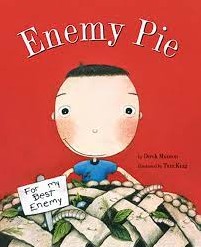I’ve written quite a few posts on here about decisions centered around kindergarten, more particularly on when to send kids to kindergarten. There is so much research out there on what to do, especially for those late summer birthday kiddos.
My second child is in a similar boat as my first, his birthday is in early August so he is right around the Sept. 1st deadline for starting school as well. If we were to send him to kindergarten when he is supposedly supposed to go according to these guidelines, he would turn 5 years old and then head to his first day of kindergarten just two weeks later. Some kids thrive under these conditions- i.e., my firstborn! For others, this sounds like an absolute trainwreck- i.e., my secondborn.
We still struggled with the decision for a while, though.

During our research, my husband and I ended up reading the book Boys Adrift by Leonard Sax, a great book full of advice for raising boys in the modern world. In the chapter about starting school, Leonard talks a lot about a study done on brain scans of male and female brains over the period of many years and the findings they had on how a male brain develops vs. how a female brain develops. When it comes to the part of the brain that has to do with attention span, reading, writing, etc., they found that the male and female brains develop at the same pace, but the male brain is roughly two years behind the female brain in this development.
He is clear that this does not mean that one is smarter than the other, it just means they are different in how they develop. In regards to boys starting kindergarten he states,
“Trying to teach five-year-old boys to learn to read and write may be just as inappropriate as it would be to try to teach three-year-old girls to read and write. Timing is everything, in education as in many other fields. It’s not enough to teach well. You have to teach well to kids who are ready to learn, kids who are developmentally “ripe” for learning. Asking five-year-old boys to learn to read- when they’d rather be running around or playing games- may be the worst possible introduction to school, at least for some boys.”
He continues on with the subject and even states that more often than not, you’ll see the majority of boys starting kindergarten at six years old because parents are seeing the benefit of this “gap year” in their sons.
This research seemed very interesting to me and in observing my own children, it made sense. At three years old my daughter was ready and eager to learn letters and numbers and how to write. At 3.5 years old, my son wants absolutely nothing to do with them and I am doing my best not to push anything on him until he is ready.
What are your thoughts on sending kids to kindergarten a year later and giving them a gap year? Do you think gender, birth order, or other factors play into the decision?
Cover photo from pexels.com










